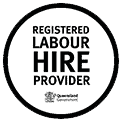Even though tricky interview questions do not happen every time, they are definitely not candidates’ favourite part of the job-seeking process. If questions like that are to happen during an interview, the right preparation and a can-do attitude can make them significantly easier to handle. Read on for top tips on acing the more challenging interview questions and examples on how to tackle those.
Putting plenty of time and effort into preparation will best position you to confidently answer any question and sell your skills and experience. Interviews generally consist of two types of questions: general ones that frequently appear in most interviews, and the ones that are specific to the interviewee and the role. These can be straightforward or designed to test your abilities.
Tips on approaching tricky interview questions
Bear in mind that employers pose tricky questions for several reasons: to find out how you handle information, how you solve problems and how you perform under pressure. Here are several recommendations on how to handle these questions:
- Consider the interviewer’s motive for asking a particular question, try to understand what the underlying reason here is, and answer accordingly.
- Stay calm, even if facing the hardest interview question ever. This shows you would be able to handle stress and pressure in a work environment.
- Be prepared to explain the reasoning behind your responses.
- Ask for the question to be repeated if you did not understand it straight away.
- Don’t rush an answer.
- Take a notebook and paper and take notes during the interview. It will help you process information and will help you recall what you discussed at a later stage.
- Take along a copy of your CV for yourself and refer to it for dates and details if you need to. It will serve to remind you of your accomplishments etc.
- Use data and specific facts to substantiate your statements. For example, I helped increase sales revenue by 10% over the quarter by implementing a new client communications protocol.
- Avoid exaggerating, but don’t be afraid to sell yourself.
Some Examples of Tricky Interview Questions
How long would it take you to make a meaningful contribution to our company?
Be realistic. Say that, while you would expect to meet pressing demands and pull your own weight from the first day, it might take three to six months before you become fully immersed in the role and company.
What can you do for us that someone else can’t?
Here you have every right and perhaps an obligation to toot your own horn and sell yourself. Talk about specifics from your CV or inventory of accomplishments, and state that your skills and interests, combined with your history of getting things done, make you a valuable addition. Also, mention your ability to set priorities, identify problems, and use your experience and ability to solve them.
In your current (last) position, what problems did you identify that had previously been overlooked?
Be brief and don’t brag. Indicate the positive changes your suggestions or leadership resulted in – if they are measurable, make sure you put those numbers forward.
What are your weaknesses?
This is a great opportunity to demonstrate your self-awareness—there is no excuse for not being prepared. When choosing a weakness, concentrate on something that is related to your professional life. When discussing it, keep it brief and explain how you worked to overcome it. Don’t try to turn your weakness into a strength—this would be a cliched response.
Why are you looking to leave your current job?
Focus on what you are looking for in your next job i.e. more challenges, greater responsibility, a new perspective in a different organisation. You could also use this question as an opportunity to discuss what it is about the interviewer’s organisation that has drawn you to the role. Please remember to not criticise your current employer or manager. For a comprehensive guide on a stress-free resignation process navigate here.
What are your long-term goals?
The interviewer’s motive here is to find out whether your goals fit well with the company. There’s a fine balance between being hungry for success and over-ambitious. Pick goals that are related to the potential new role. Do some research before the interview to determine the company’s culture and point your response in that direction. Leave out the personal goals.
How long are you planning to stay with us?
Honesty is the best policy when it comes to answering this question. If you’re planning to leave work to embark on a doctorate in a couple of years, you could mention that, but add in a positive note, saying you would work very hard to help the company achieve its objectives. Highlight the company’s achievements to date, which demonstrates your preparedness, and indicate that you would like to work for them long-term to achieve more goals like the ones you mentioned.
What important trends do you see in our industry?
This question is intended to probe the extent to which you’ve done your research on the role, company and the industry you are planning to work in. Your answer would also demonstrate the extent to which you are engaged in the profession and understand the environment in which the company is operating. A proper internet search before the interview will uncover the trends at play if you don’t already know them.
Tackling the tricky interview questions is a form of art, but with the above tips, preparation and some common sense, you would be able to shine bright.
If you need more information on the industry, recommendations on the roles in construction, real estate, or property in Asia, get in touch with our team today, our recruiters would be happy to help in your job search.





